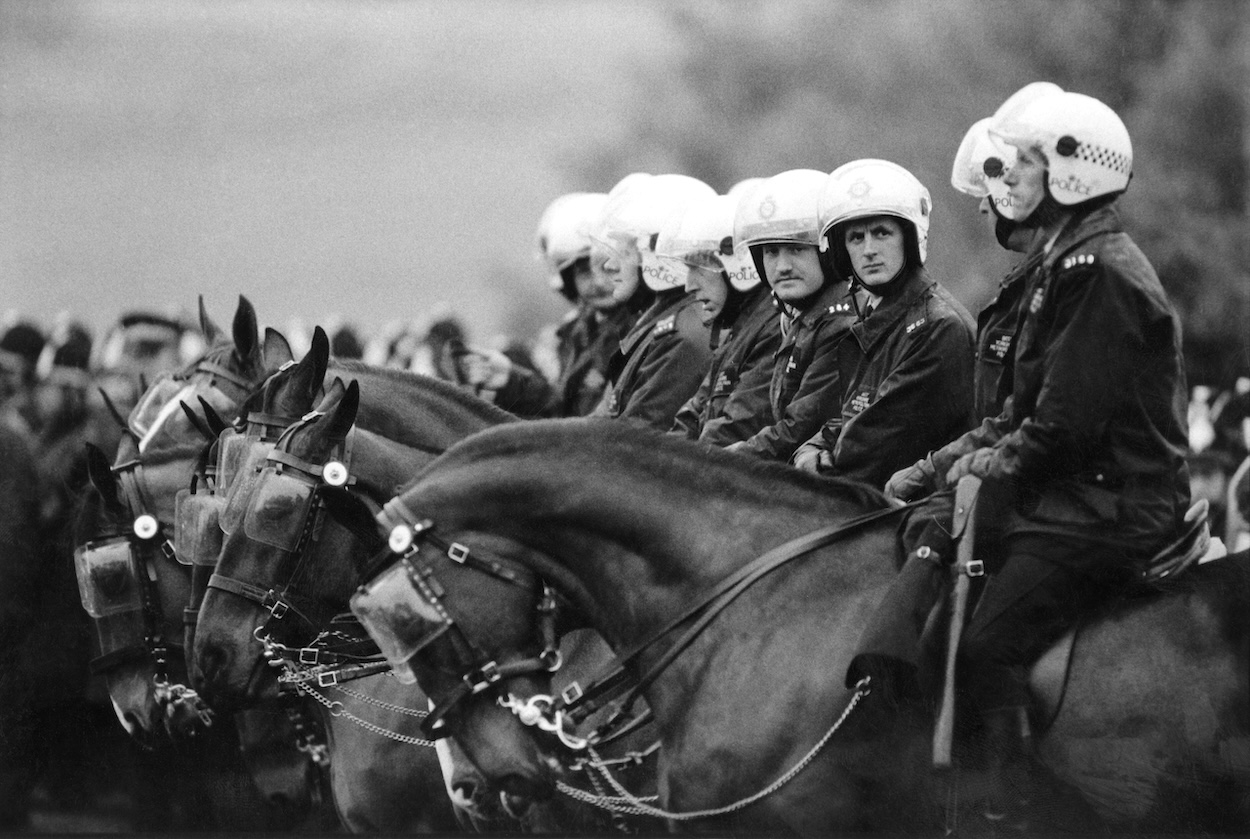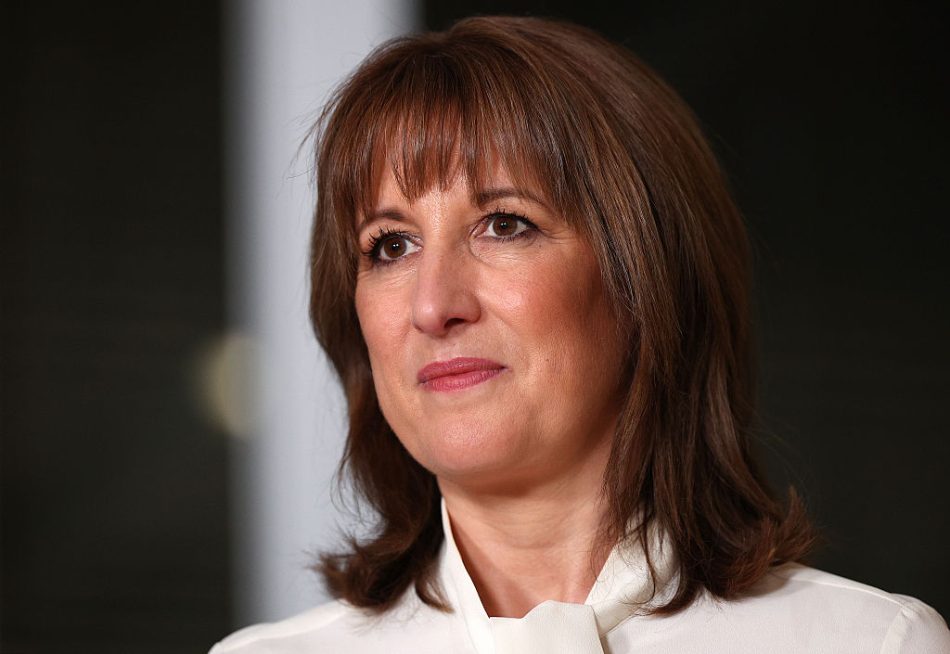Recently, I was on my way to buy the Saturday papers when my ears pricked up. In the distance, I could hear the unmistakable sound of a protest: whistles, slogans, klaxons. I strained to make out what people were shouting, but, given the grim images recently beamed from Gaza, odds were, it was about the Israel-Hamas conflict.
What had promised to be a typical day in suburbia was about to get more interesting. I imagined the ranks of police retreating under a barrage of missiles. The keffiyeh-wearing protesters surging forward, battering the coppers with their homemade placards. As the din grew louder, I wondered if I’d make it to the shops before the street battles began.
And then they came into view. Not a mob intent on a ruckus, but people astride bikes flying little Palestinian flags, some with small children on the back, cycling in an orderly fashion under the instruction of marshals. No paving slabs would be torn up and hurled at the fuzz. There probably wouldn’t even be a police presence, because this was a bunch of middle-class people, protesting in the most civilised way possible.
I continued to watch as they passed, pedalling sedately on their sit-up bikes, an odd stentorian voice bellowing ‘Free Palestine!’ which would elicit a ringing of old-fashioned bicycle bells. After they’d gone, a faint ting-tinging still audible as they disappeared into the next suburb, I mused that people with panniers who wear bicycle clips are unlikely to influence global politics, much less the dismal situation in the Middle East. But I admired their idealism, because I, too, was once a dreamer.
Beyond the confines of my public school, which I hated, Britain in the seventies and early eighties was a tinderbox. During that period of unrest, the capitalist system seemed, at least momentarily, to totter. The Sex Pistols sang ‘Anarchy in the UK’ and for a time, revolution didn’t seem implausible, at least not to my impressionable young mind.
Race riots broke out across England, including in my hometown of Bristol, and we watched on TV as the police used metal dustbin lids to protect themselves from petrol bombs. Miners’ strikes led to pitched battles between pickets and the authorities. And an IRA mainland bombing and shooting campaign caused bloody mayhem.
Being a serious-minded child, I joined Amnesty International at an absurdly young age – although my parents forbade me from attending protests – and read Marxism Today and New Internationalist. As a student, pictures of communist leaders lined my walls. I bought a copy of Che Guevara’s Guerrilla Warfare (very recherché) – not, I should stress, as a ‘how to’ manual – and a friend gave me a copy of Das Kapital for my 21st, which proved unreadable.
I studied pre-revolutionary Russian literature as part of my English degree and on a friend’s birthday presented him with, God help me, a miniature bust of Stalin. Given that ‘Uncle Joe’ is second only to Hitler in the pantheon of 20th-century monsters, I’m not sure what possessed me.
The Sex Pistols sang ‘Anarchy in the UK’, and for a time, revolution didn’t seem implausible
I went on the obligatory student demos, including a protest in central London against the introduction of student loans. At one protest, I self-consciously wore a Breton fisherman’s cap with a Lenin pin on the brim, hoping it would make girls fancy me. Instead, I heard a gruff Welshman say: ‘What does that prick think he looks like?’ I beat a hasty retreat at the first sign of trouble. Later, we marched on the local Conservative party offices. Despite being vastly outnumbered, an elderly gent, ramrod straight, faced us down. We froze under his gaze, before someone broke the spell by shouting: ‘Fuck off, Adolf’ and shamefully, we all laughed and jeered. It still embarrasses me now to think of it. I imagine him at Monte Cassino, single-handedly taking a German machine-gun post armed only with a potato peeler.
In the 1987 election, I’d canvassed for Tony Colman, Labour candidate for the Putney constituency. Over a pint in the student bar, I made the mistake of offering my opinions to a party functionary. He told me bluntly that nobody cared what I thought and so ended my involvement in the democratic process. But the scales had started to fall before that. I’d met people on the political extremes – including members of the Socialist Workers party – who were among the most unpleasant individuals I’d ever come across. And I realised that, as a soft middle-class kid, I just wasn’t cut out for that sort of thing.
Besides, the revolution was already over. The once all-powerful unions had been crushed and Maggie Thatcher – forever known to my generation as ‘the milk snatcher’ – seemed unassailable. City boys were ’avin’ it large thanks to the Big Bang and the rest of us settled down to lives of bovine consumerism, being sold stuff we didn’t even know we needed.
In 2003, an estimated two million people marched against the impending Iraq War but it happened anyway. No weapons of mass destruction were found and a fire was lit that’s still burning. Any vestiges of youthful idealism evaporated after that.
As I live my life of middle-aged cynicism and lassitude, the world’s most intractable problem grinds on. I recognised the hollow gods for what they were and realised I’d been a gullible fool. But the loss of my idealism – by no means uncommon – wasn’t reflected in the well-mannered protest I saw the other weekend. I’m glad about that, regardless of one’s opinion on the cause. So, perhaps I’ll borrow a Dutch bike, don some open-toed sandals with socks and go on a rally about something. It may not change anything but I’ll get some exercise, feel good about myself and be able to ring a vintage bell with complete abandon. Ding, ding.








Comments